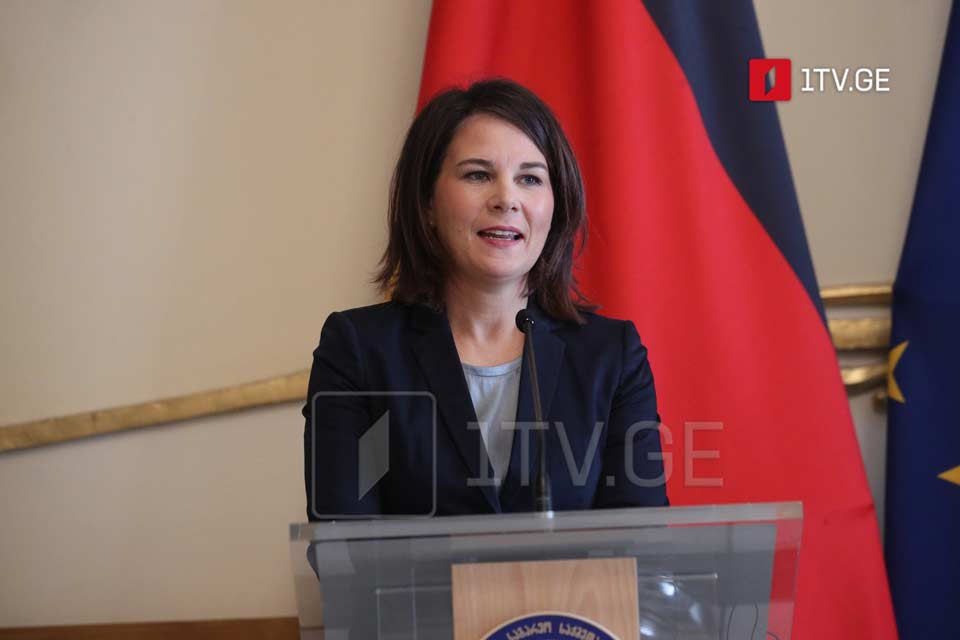We have to ask ourselves, how can we ensure that the accession process takes place in a way that avoids leaving a whole generation in the waiting room with the European Union for the rest of their lives, Annalena Baerbock, the Minister of Foreign Affairs of Germany, addressed the conference in Berlin.
“It was in the Saloniki 20 years ago that the European Union promised the countries of the Western Balkans that the door to the European Union was open to them if they were to comply with the necessary conditions. Parents, who 20 years ago gave birth to children, must’ve thought great, when my child, my son, my daughter has grown up, he or she will be able to study in any country of the European Union. But the children are 18, 19 or 20 years old now. And until that day, until today, the dreams of these parents and their children not only have not been fulfilled, but, and we have to be honest in admitting this, but have also instilled a sense of frustration and resignation in some cases that others are exploiting. But the geopolitical reasons, speaking in favor of having Ukraine, Moldova, and Georgia exceed equally true for the Western Balkans, despite the fact that they have not done everything that could have been done in the last years. That’s why we have to ask ourselves, how can we ensure that the accession process takes place in a way that avoids leaving a whole generation in the waiting room with the European Union for the rest of their lives.
My working proposal would be that we get out of the situation where people believe that accession is either of thing.
We should make sure that the people of these countries, especially the young people get an opportunity to participate in the advantages of the European unit at an earlier stage, even before their country becomes a full member.
Here too, what may appear a small gesture or a small thing might have a better effect. Because it affects the everyday life of these people. Take for example, students from north Macedonia, if we were to allow them or students from Serbia, Turkey to study in the European Union with Erasmus scholarships,” she said.
She said this would make the attraction of the EU in these countries much more tangible.
“We should open up more funds and EU programs for accession countries be that in the field of research promotion, or be that to allowing them to use Erasmus programs, but also to practice steps affecting the everyday life of people like roaming fees and simplified visa procedures. We should also consider ways in which we can integrate the candidate countries in the European Union to a step-by-step process. Why don’t we, for example, invite those countries that have finalized individual chapters in the accession procedure to attend the respective council meetings as observers. We would have them there. For example, when we were to decide our common future. Instead of inviting them just once a year for them to listen to the progress reports of the commission. If we do not want our neighbourhood to turn into a grey zone, then we have to get these people to the table, bring them to our table now. But it has to be equally clear, and we talked about this a couple of weeks ago in Albania, that this step-by-step integration does not mean cherry-picking. Because we are talking questions of principle here. The European Union is only going to function if we don’t accept any diminishment of the substance of our community, our shared fundamental values, rule of law, democracy will always be the solid foundation of the European Union. That is what makes for our strengths. this is also about us being more consistent in linking the payment of EU forms to the compliance with rule of law standards,” the German Minister added.
